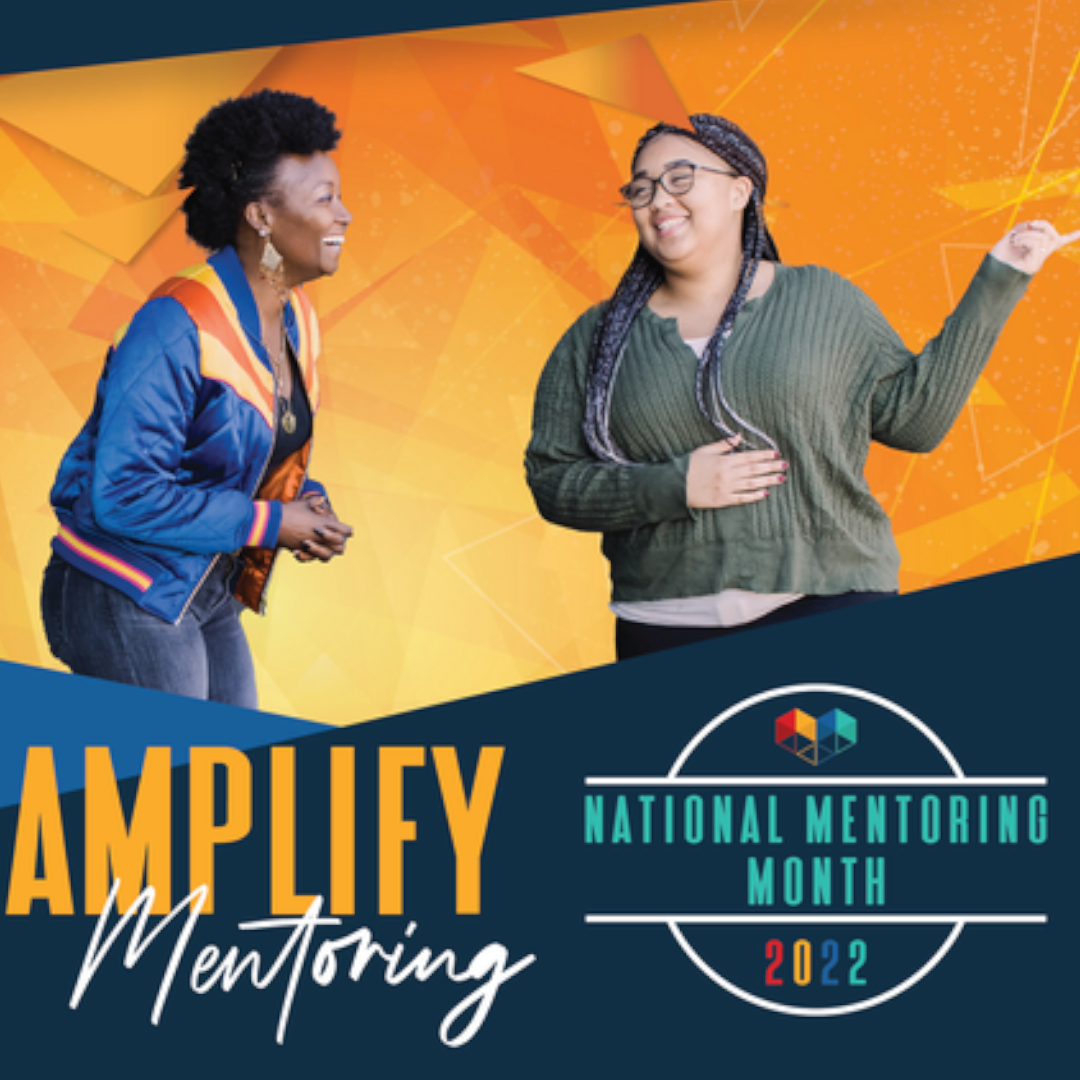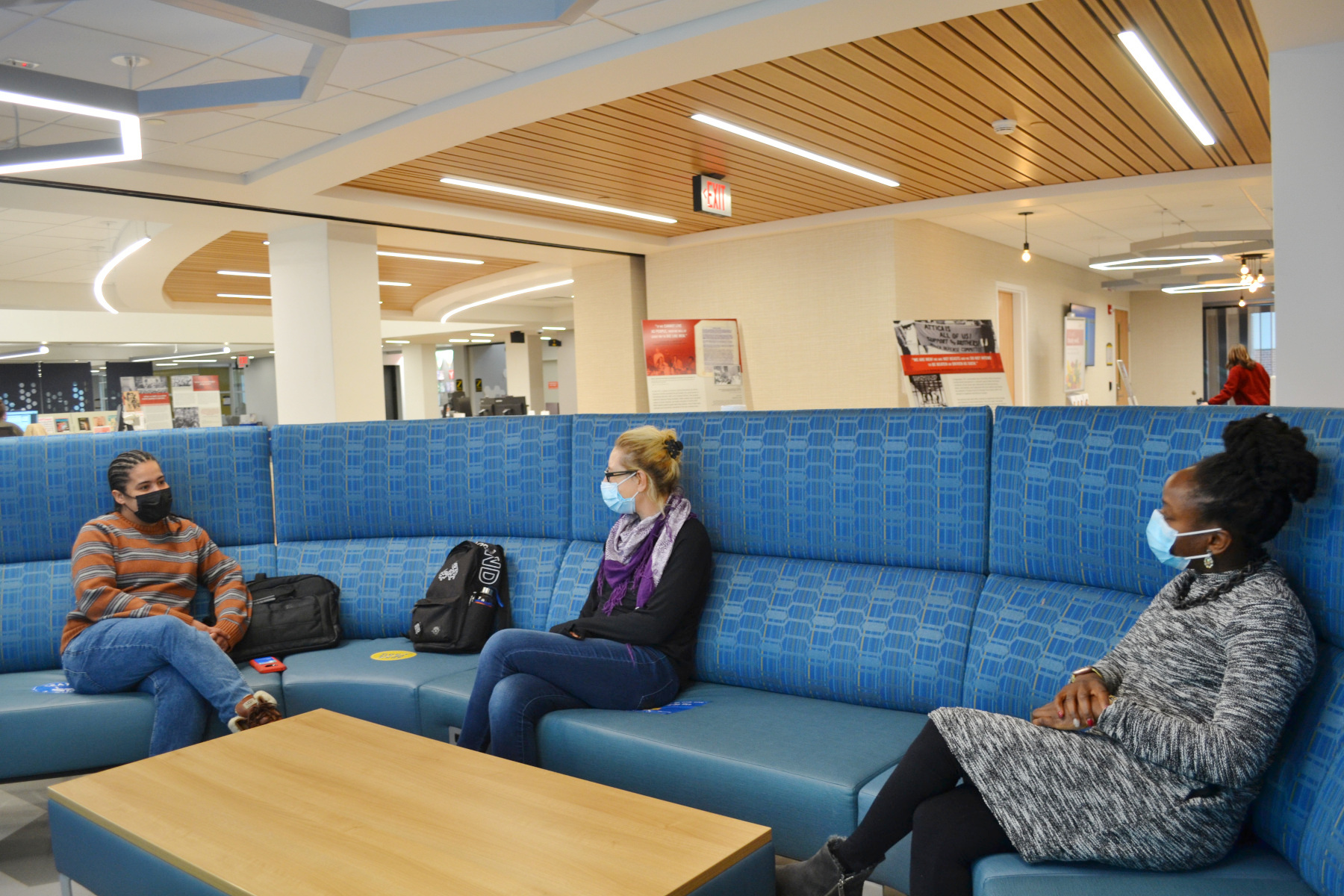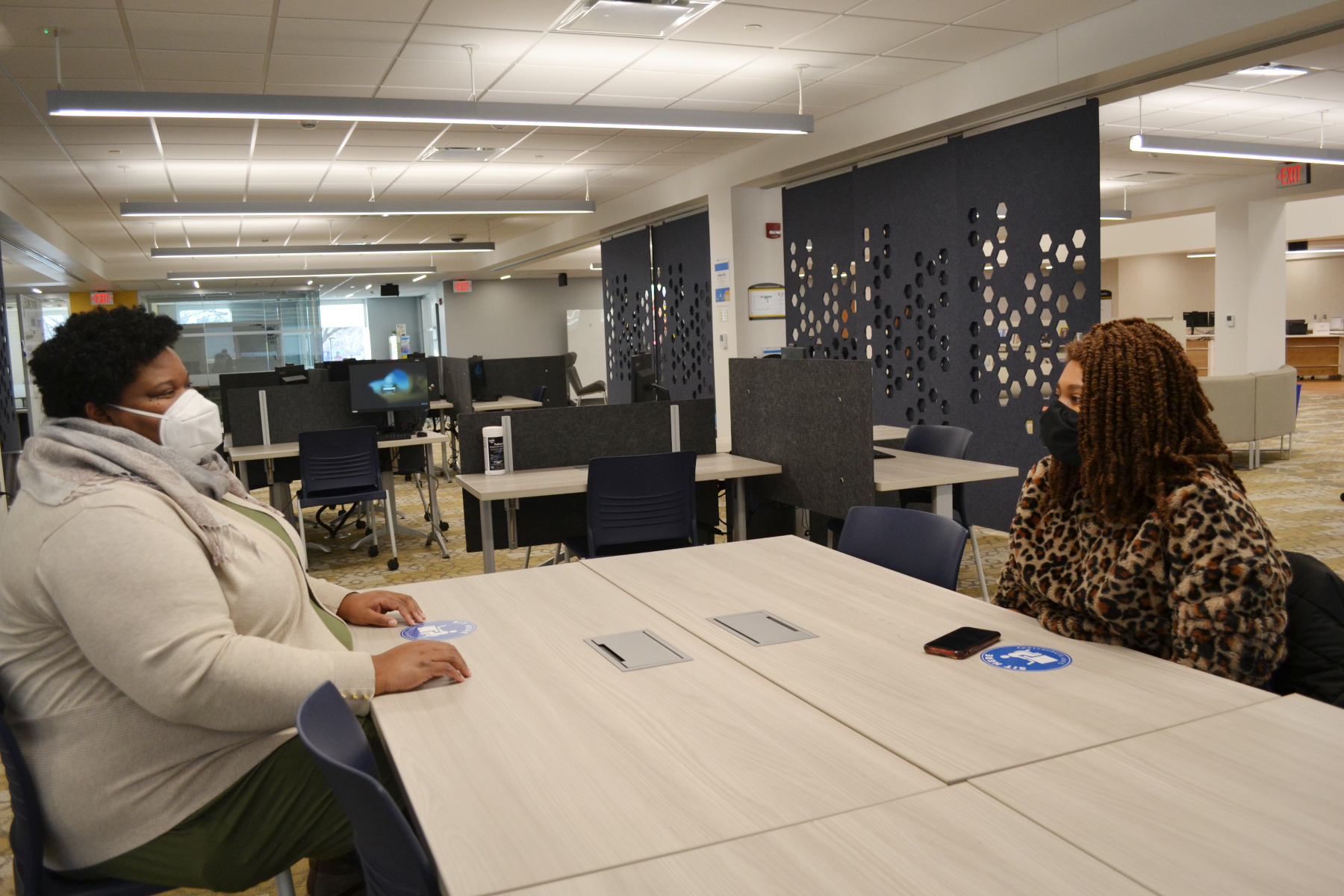January is National Mentoring Month: Mentors Offer Support and Guidance for Students

January is National Mentoring Month
“The Student Mentoring Program was extraordinary! At this point, I consider my mentors friends. At SUNY Schenectady everyone helps with your success. How wonderful it is to have a support network there,” said Jennifer Malave, who was President of the Student Government Association and ALANA Club. She graduated in December with her degree in Human Services and transferred to the University at Albany where she is now studying for her bachelor’s and master’s degrees in Political Science.
The Mentoring Program links students with mentors who offer support, guidance, and assistance to their mentees as they confront new challenges, or work to correct earlier problems that might otherwise turn into barriers towards academic success.
Meet some of the students and mentors in the program.

Jennifer Malave '21, with her mentors Dr. Babette Faehmel, Professor in the Division of Liberal Arts, and Dr. Imari Shaw, Assistant Professor in the Division of Math, Science, Technology and Health.
How have your mentors, Dr. Babette Faehmel and Dr. Imari Shaw, helped you?
Babette was inspiring. She helped me get an apartment, settle in, and she introduced me to several faculty and helped me make the connections I needed. Dr. Shaw helped me with career advice and helped me realize my interest in political science. Imari is a person of color, as well. It’s important to be around people who look like you and have had similar experiences in life. Therefore, you don’t feel alone. They both taught me a lot about college and helped me to figure out that I can get my master’s degree paid for by qualifying for grants and fellowships.
Why did you decide to join the mentoring program?
I moved upstate from New York City and I didn’t know anyone in Schenectady. I knew that in order for me to succeed, I really had to make connections here. The Mentoring Program helped me do that.
What would you tell other students interested in joining the program?
I would tell them to definitely go for it!
How have you connected with your mentors?
While we were virtual, we would text, email, and Zoom call every Sunday. We still meet up every Sunday either in person, when it’s been safe to do that, or virtually. Even students who have already graduated who were in the program join us. It’s been rewarding! It feels like a small family.
How is having a mentor valuable for students?
Mentors are great for all students, but especially for those who do not know a lot of people around them who support their vision and goals. Or for students who do have people who support them, but they are not really sure about the steps that a student needs to complete in order to get where they want to be. Like, when I decided to go to college (and I was the first in my family to do so) my parents did kind of support me. They definitely never discouraged me, and they sent me care packages. But they had absolutely no idea what courses to pick, how to network, how to talk to a professor, to write a paper, to act in a seminar, etc. And when my studies took longer and longer, and I started to bring home books and ideas they thought were strange, I think they were starting to doubt that college had really been such a good idea. A good mentor can be a tremendous source of validation. A good mentor can also be of immense help in navigating college life and college policies; they can help with career exploration and with networking!
Did you ever have a mentor when you were a student? If so, what did you gain?
Oh yes! Looking back, I can say that I always had mentors. The first one was my drama teacher in high school. Everyone else, I think, had given up on me at that time, but she saw something in me. That was like a lifeline. Once I was in college, I always had one or two professors who took an interest in me, who spent time out of class talking about readings, papers, etc. These were people who encouraged me to apply for fellowships, who asked me to do presentations, to write for publication, to speak at conferences...Most of them are still in my life in some form. We are now colleagues and friends. But they are in many ways like family.
What are some of the ways in which you have supported/encouraged your mentees?
I think I try to replicate the mentoring I have received myself at some stage of my life. Some students need the kind of support I needed when no one thought I would ever amount to anything. Some students need maybe just a bit of a push to apply for some position they are not sure they should aim for. Mentoring is a very individualized thing. There is no one-size-fits-all mentoring blueprint. That's also why listening and mutual respect is really important for a good mentoring relationship.
How are students matched with mentors?
Well, so I usually hear that a student wants a mentor because they have filled out a survey they got on the webpage, or from a success coach or a tutor. The survey asks what a student wants to get from the mentorship, what they need or are struggling with, or hoping for. It also tells me a bit about that student's interests, college program, and goals in terms of their academic plans. I then contact the person and ideally, we meet (virtually or in-person) so I get better sense of that student. I then usually contact a number of faculty or staff who have the training or experience to act as mentors. I ask if they would like to meet this student, and if they say ‘yes,’ I facilitate the first contact. The mentors then take it from there. But the students can always come back to me and let me know if the match is not quite what they were expecting and that they want to meet another person. It actually has only happened a couple of times because, honestly, the mentors are amazing. But the student has the option.

Busi Motau, Performing Arts: Music major (right), with her mentor Alicia Richardson, Interim Chief Diversity Officer.
How have you benefitted from the Mentorship program?
I have gained a lot because of the fact that my mentor, Alicia Richardson, has given me direction and guidance. During the conversations I have with my mentor, she makes me realize certain things I never would have thought of on my own. Like I recently expressed an interest in the Mandarin language and I’ve been trying to learn it. She told me that if I was interested, I could start my own club. I didn’t know that existed and that’s something that’s very interesting to me.
What has been some great advice you have received from your mentor?
She told me early on to always take time to do something that you enjoy doing for fun. Because I’m the mother of a four-year-old, I had neglected that part. She showed me how important it is. Because of that, I found a way to implement it into my schedule.
Why did you decide to join the mentoring program?
I saw a flyer at the College and I thought it would be interesting. The Student Success
Center reinforced it. I got referenced for Ms. Richardson to be my mentor. I definitely
thought I was going to get guidance so that was something that I was drawn to.
What would you tell other students interested in joining the program?
Go for it. You don’t have to keep your thoughts to yourself. You can have somebody
who has more experience guide you in the right direction. You might realize something
that you never would have thought of on your own.
What have you enjoyed about being a mentor?
My favorite thing about being a mentor is connecting with a student and hearing their story and then telling them a bit of mine and helping them to realize that there’s no one right way to do this. Everyone has a different means of completing a task and it’s not going to look the same. I get to validate their experience and the fact that it’s not going to look like anyone else’s. Students can feel like, ‘I’m not doing it the way they’re doing it’ and as a mentor I get to validate and say, ‘If you’re being successful that’s fine, but if you’re not then let’s think about a different way to do this.’ It’s OK to do that.
How have you seen your mentees grow as a result of being in the program?
Before the program, I would have Black women, Latina women, and other women of color come and find me to talk about things. One student in my class was trying to get through College composition and I was backing her the whole way. She graduated from nursing school and invited me to her graduation.
I have had three mentees in the program. What I think I see the most in all of them is the growth in their confidence and their ability to ask questions to challenge things and they know that I have their back when they do. For example, my current mentee Busi has really opened up. She is recognizing what her strengths are and realizing what support structures are there for her.
What mentors were influential in your life and what did they give to you?
I went to a college where there were no faculty in my degree program of color and I had to really create those opportunities for myself. I had to go see my professors during office hours and make them my mentors. What I appreciate is that those relationships were able to withstand the test of time. Some of them I still talk to and they still offer me advice in academia about what to do next and what I should be looking for. There is this longevity to mentorship that can really give you an insight that other people can’t give you. They supported me as I grew.